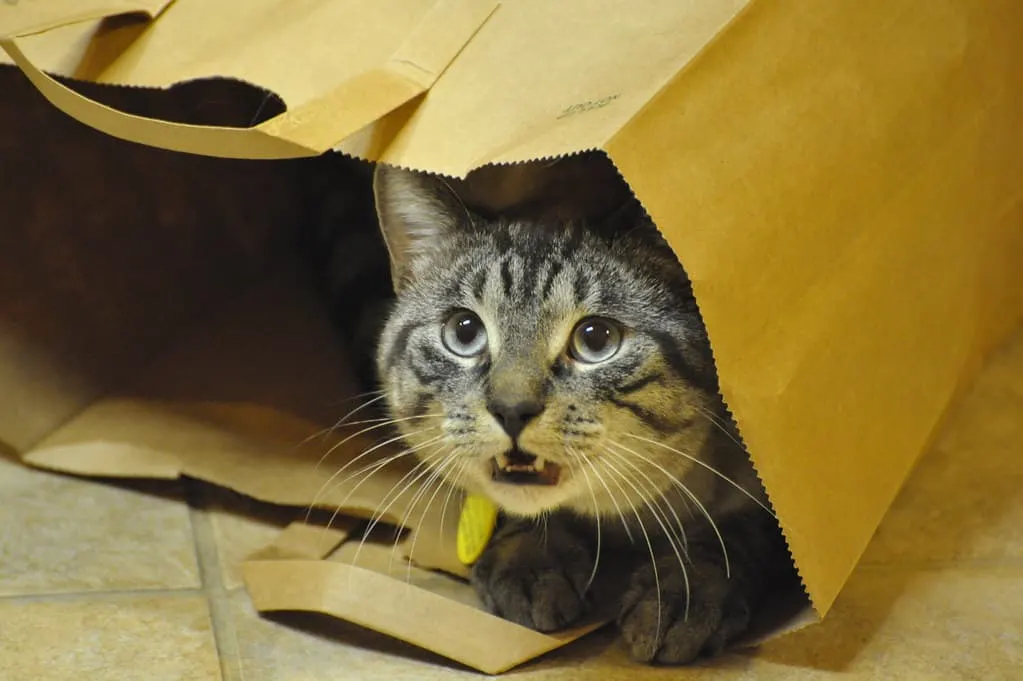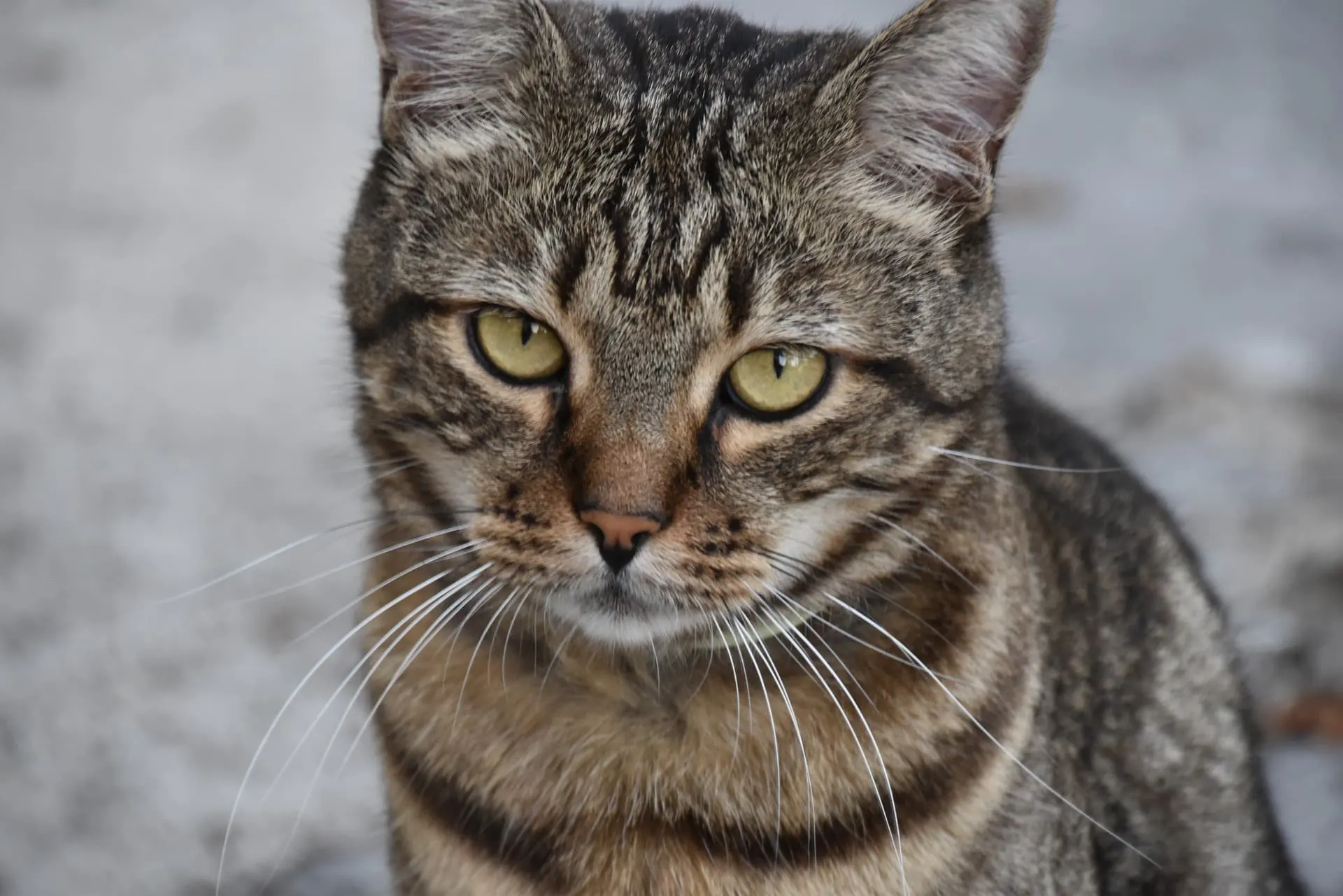Cats have their own special form of communication, but it’s our responsibility as cat owners to learn how they communicate so we can help them when they need it.
Unfortunately, sometimes when cats are sick or injured, they withdraw from people and hide.
This is why you need to be aware of all the signs your cat needs help so you can be there for your kitty when he/she needs you the most.
Keep reading to learn the 7 signs your cat needs help!
1. Vomiting or diarrhea: This is never a good sign. Aside from the occasional hairball, it is not normal for your cat to vomit or have diarrhea.
Both vomiting and diarrhea can cause dehydration and be a symptom of a bigger medical emergency. If your cat has vomiting or diarrhea, schedule a vet appointment immediately.
2. Lack of appetite. A complete lack of appetite for both food and water is not a good sign.
Eating is your cat’s favorite thing to do and only something serious could ever discourage them from eating.
If your cat is not eating, take them to the vet and ask for a fecal test and full wellness examination to investigate the root of the problem.
3. Weight change. Any change in weight is a potential cause for concern. A loss of weight is more dangerous in the short term for your cat, because it could be an indicator that something is seriously wrong.
Weight gain is more dangerous for cats (just like people) over time, because it can lead to diabetes or joint issues.
If you notice your cat losing a lot of weight, get to the vet immediately.
Also, If you notice kitty getting chubby over time, it might be time to discuss your cat’s diet and nutrition with your vet.
SURVEY: Do You Consider Cats Family?
Your opinion matters!
4. Lying around (lethargy). If your cat is suddenly doing nothing but sleeping, it could be cause for concern.
This, too, can indicate a need for a companion or a larger medical issue. Of course, just like people, when cats get older, they tend to slow down a bit and need more rest.
However, if your cat is sleeping all the time, not playing, and not showing much interest in anything, it might be time for a trip to the vet to try to pinpoint the cause.
5. Litter box issues. Cats are creatures of habit. If your litter box trained cat starts going in places other than the box, your cat might be telling you that either they’re lonely or that something else is stressing them out.
Not using the litter box properly can also be a signal of something more serious. Pay attention to the amount of urination and if you spot any changes or if your cat stops urinating completely.
This is especially true if you have a male cat. If you notice these changes, go to the vet immediately.
6. Drinking a lot of water. Many cat owners never even notice their cat drinking. If you suddenly start to see them drinking a lot, it could be an indicator that they have a problem with the urinary tract or their kidneys.
Often, older cats have kidney problems, so if you have a senior cat, it’s a good idea to let a vet check them as soon as possible.
If your cat does have a kidney problem, there are special diets and medications that can help alleviate many of the symptoms.
7. Pawing at their mouth. If you notice your cat pawing or scratching at their mouth a lot, they’re probably not eating as much as well.
It could be a sign that they have an abscess in a tooth or something else stuck in their teeth that’s causing them pain. Try to open your cat’s mouth a bit and see if you see anything in there that shouldn’t be.
You may be able to help remove something that’s stuck, but most likely, it’s worth a trip to the vet, because an abscess or other infection can be serious.
SURVEY: Do You Consider Cats Family?
Your opinion matters!
Actions Speak Louder Than Words
Even though cats can’t talk, they do a pretty good job of communicating to us when something is bothering them.
It’s up to us to pay attention to our cats and recognize any change in their behavior, eating, or litter box habits.
Because cats are creatures of habit and routine, any change means something has changed with your cat, and they may be trying to signal to you that they need your help.
While there can be many causes for different changes in habit, some less serious than others, it can be hard to figure out exactly what’s going on.
Conclusion
It’s never a bad idea to check with your vet if you see a change in your cat that you can’t figure out.
Often, if a kitty needs a feline companion or more interaction with their human, they may display the same behavior as if they were sick.
If you do decide that your cat’s problems can be resolved by having a friend (and not just more playtime with you), be sure to introduce the new companion slowly, so as not to upset your existing cat any further.
QUESTION: How does your cat let you know he or she needs help?




